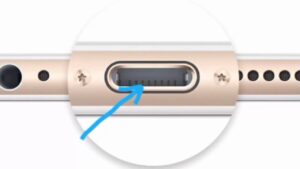Are you unsure about the meaning of Wh on batteries? Well, you’ve come to the right place! Understanding the significance of Wh (watt-hour) when it comes to batteries is essential for anyone who relies on portable power. In this article, we will shed light on the meaning of Wh on batteries and how it impacts your everyday life. So, if you’ve ever wondered about the energy capacity of your batteries or how long they will last, keep reading to satisfy your curiosity.
Meaning Of Wh On Batteries
Batteries power many of the devices and appliances we use daily, from smartphones and laptops to cars and household appliances. When shopping for batteries, you might come across a specification called “Wh” or watt-hours. But what does this measurement mean? In this article, we will delve into the meaning of Wh on batteries, how it is calculated, and why it is important to consider when choosing the right battery for your needs.
What is Wh?
Wh, or watt-hour, is a unit of energy commonly used to measure the capacity of a battery. It represents the amount of energy a battery can deliver over a period of time. In simpler terms, it indicates how long a battery can power a device or appliance.
How is Wh Calculated?
The calculation of Wh involves two factors: voltage (V) and ampere-hours (Ah). To determine the Wh of a battery, you multiply the voltage by the ampere-hours. The formula is as follows:
Wh = V × Ah
For example, if you have a battery with a voltage of 6 volts and an ampere-hour rating of 5 Ah, the calculation would be:
Wh = 6V × 5Ah = 30 Wh
So, in this example, the battery has a capacity of 30 watt-hours.
Why is Wh Important?
Understanding the Wh rating of a battery is crucial for several reasons:
1. Battery Performance and Runtime:
The Wh rating directly affects the performance and runtime of a battery-powered device. A higher Wh rating indicates a greater energy capacity, which can result in longer battery life. This means you can use your device or appliance for an extended period before needing to recharge or replace the battery.
2. Compatibility:
Different devices and appliances have varying power requirements. Knowing the Wh rating of a battery helps determine if it is compatible with a specific device. Ideally, the battery’s Wh rating should be equal to or higher than the device’s power consumption for optimal performance.
3. Comparing Battery Options:
When choosing between different batteries, comparing their Wh ratings allows you to assess which one offers better energy capacity. A battery with a higher Wh rating will generally deliver more power and last longer. However, it’s important to consider other factors such as battery type, voltage, and compatibility with your device.
4. Travel and Airline Restrictions:
If you frequently travel with battery-powered devices, understanding the Wh rating is essential. Many airlines have restrictions on the maximum Wh capacity allowed in carry-on or checked baggage due to safety concerns. Knowing your battery’s Wh rating can help ensure compliance with these regulations and prevent any inconveniences during travel.
Factors Affecting Wh Efficiency
While Wh provides an overall idea of a battery’s energy capacity, it’s important to note that several factors can influence its efficiency and actual runtime. These factors include:
1. Device Power Consumption:
The power consumption of the device or appliance connected to the battery plays a significant role in determining its runtime. Devices with higher power requirements will drain the battery faster, reducing its effective runtime.
2. Battery Age and Health:
As batteries age, their capacity to hold a charge diminishes. This means that even if a battery has a high Wh rating, its actual runtime may decrease over time. It is recommended to periodically check and replace batteries to ensure optimal performance.
3. Temperature:
Extreme temperatures can affect battery performance. Cold temperatures, in particular, can decrease a battery’s capacity and runtime. It’s important to store and use batteries within the recommended temperature ranges specified by the manufacturer.
Understanding the meaning of Wh on batteries is crucial when selecting the right battery for your devices and appliances. The Wh rating provides valuable information about a battery’s energy capacity and runtime. By considering the Wh rating along with other factors such as power requirements and compatibility, you can make informed decisions and ensure optimal performance. Remember to also consider factors that may affect Wh efficiency, such as device power consumption, battery age and health, and temperature. Armed with this knowledge, you can confidently choose the right battery to power your devices efficiently.
Frequently Asked Questions
What does “Wh” mean on batteries?
The abbreviation “Wh” stands for watt-hour, which is a unit of energy commonly used to measure the capacity of a battery. It represents the amount of energy a battery can provide over a specific period.
How is watt-hour different from ampere-hour (Ah)?
While watt-hour (Wh) measures the total energy capacity of a battery, ampere-hour (Ah) measures the total charge capacity. The relationship between the two units depends on the voltage of the battery. To convert between them, you can use the formula: Wh = Ah × V, where V is the voltage of the battery.
Why is the watt-hour rating important?
The watt-hour rating is important because it helps determine how long a battery can power a device. By knowing the watt-hour rating, you can estimate the battery life based on the energy consumption of the device.
Can I compare the watt-hour ratings of different batteries to determine their performance?
Yes, comparing the watt-hour ratings of batteries can give you an indication of their performance. Generally, a higher watt-hour rating means the battery can provide more energy and potentially last longer. However, it’s important to consider other factors such as battery efficiency and the power requirements of the device.
Are all batteries with the same watt-hour rating identical?
No, batteries with the same watt-hour rating can differ in terms of chemistry, size, weight, and other factors. These variations can affect the battery’s overall performance, efficiency, and lifespan. It’s crucial to consider these additional factors when choosing a battery for a specific application.
What are some examples of watt-hour ratings for common batteries?
Here are a few examples of watt-hour ratings for common batteries:
- AAA alkaline battery: around 1.2 Wh
- AA alkaline battery: around 2.5 Wh
- Laptop battery: typically between 30 Wh and 100 Wh
- Electric vehicle battery: can range from 10 kWh (10,000 Wh) to over 100 kWh (100,000 Wh)
Final Thoughts
The meaning of Wh on batteries is a crucial aspect to understand when it comes to assessing their capacity and energy storage capabilities. Wh stands for Watt-hour, which represents the amount of energy a battery can deliver over a period of time. It is calculated by multiplying the voltage of the battery by its capacity in ampere-hours. By knowing the Wh rating, users can determine how long a battery will last before needing to be recharged. This information is particularly important when selecting batteries for various applications such as electric vehicles, portable devices, or renewable energy systems. The Wh rating serves as a valuable metric for comparing and choosing batteries based on their energy capacity. So, next time you come across the term Wh on batteries, you’ll have a clear understanding of its significance in determining their energy output.



